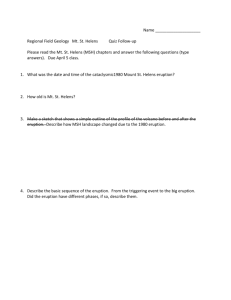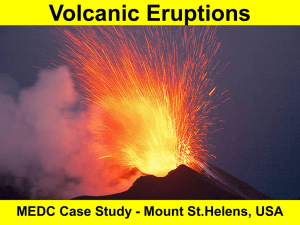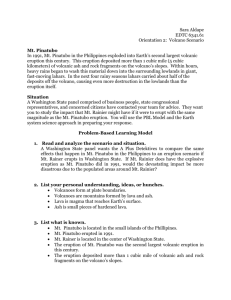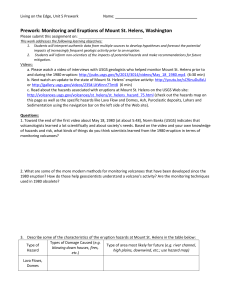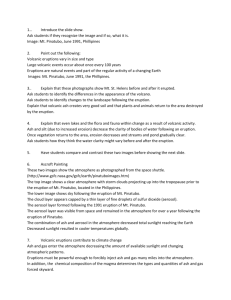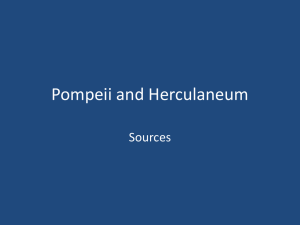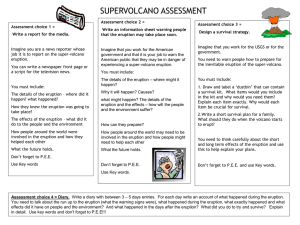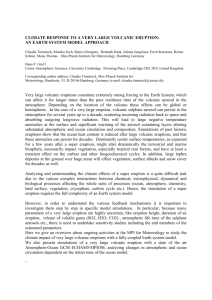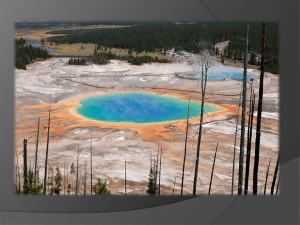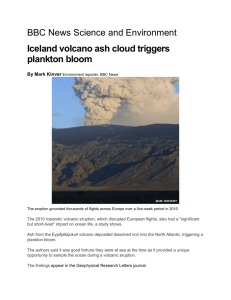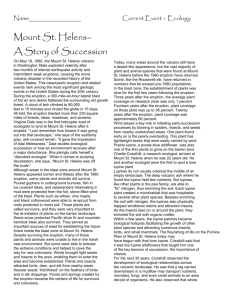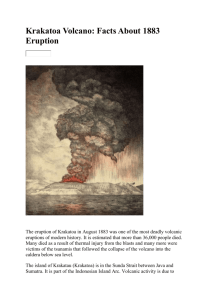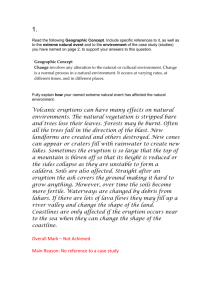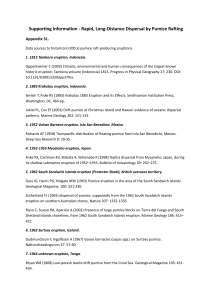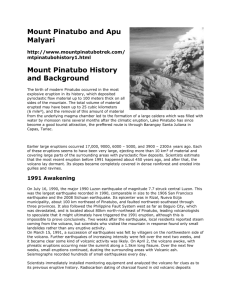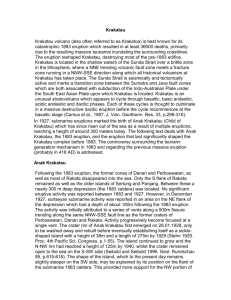Mount St. Helens 1980 Eruption
advertisement
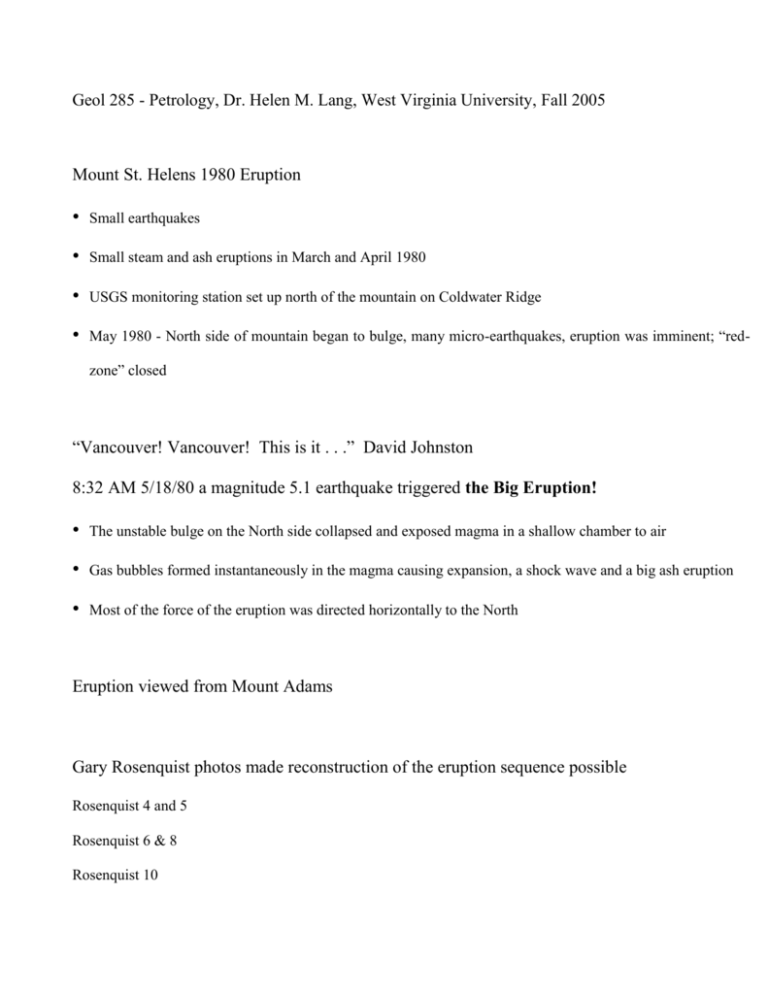
Geol 285 - Petrology, Dr. Helen M. Lang, West Virginia University, Fall 2005 Mount St. Helens 1980 Eruption • Small earthquakes • Small steam and ash eruptions in March and April 1980 • USGS monitoring station set up north of the mountain on Coldwater Ridge • May 1980 - North side of mountain began to bulge, many micro-earthquakes, eruption was imminent; “redzone” closed “Vancouver! Vancouver! This is it . . .” David Johnston 8:32 AM 5/18/80 a magnitude 5.1 earthquake triggered the Big Eruption! • The unstable bulge on the North side collapsed and exposed magma in a shallow chamber to air • Gas bubbles formed instantaneously in the magma causing expansion, a shock wave and a big ash eruption • Most of the force of the eruption was directed horizontally to the North Eruption viewed from Mount Adams Gary Rosenquist photos made reconstruction of the eruption sequence possible Rosenquist 4 and 5 Rosenquist 6 & 8 Rosenquist 10 Reconstructed Eruption Sequence (see handout) After the first few minutes, the ash erupted upward and drifted ENE with the prevailing winds View from the South on May 19 Effects of May 18, 1980 eruption Summit collapsed to form debris flows to the north and west Debris flow deposits to North Toutle River Mud Flow Directed blast vaporized vegetation near the volcano, stripped and flattened trees further out Direction of trees indicates blast dynamics Ashflows Ashflow on Snow Dome growth over next few years: Will it fill the crater? Photos of MSH Before and After May 18, 1980 We think Mount St. Helens 1980 was a big deal, not by comparison Mt. Pinatubo, Philipines, 1991 Mt. St. Helens, 1980 Mt. Katmai, AK, 1912 Krakatoa, Indonesia, 1883 Tambora, Indonesia, 1815 Vesuvius, AD 79 Mt. Mazama, 4600 BC 5 cubic km 1 cubic km 12 cubic km 18 cubic km 80 cubic km 3 cubic km 42 cubic km 1816-“the year without a Summer” (Crater Lake) Mt. St. Helen’s 1998 Recovery - 20th Anniversary National Geographic issue Johnston Ridge Observatory New Dome-building eruptions began in Oct. 2004, dome continues to grow See Sugar Bowl Dome Camera: http://vulcan.wr.usgs.gov/Volcanoes/MSH/Eruption04/Monitoring/sugarbowl_remote_camera_1004_to_09-05.html Fun at Spirit Lake in the 1940s Volcanic Hazards • Directed blast • Hot ash flows, lava flows • Airfall ash (threatens airplane visibility and engines) • Mudflows = lahars – Mixture of melted ice, debris, water, and ash – Threaten people, cities and towns far away – Lahars from Mt. Rainier could threaten Seattle and/or Tacoma Lahars=Mudflows are the main Volcanic Hazards at Mt. Rainier USGS - Volcano Disaster Assistance Program (VDAP) • http://volcanoes.usgs.gov/About/Where/VDAP/main.html • Established after volcanic disaster in Columbia (Armero) in 1985 • VDAP is a mobile, well equipped team of experienced volcanologists who can respond whenever a volcano crisis threatens anywhere in the world • Successful prediction of 1991 eruption by VDAP at Pinatubo may have saved thousands of lives Recent Eruptions • Nevado del Ruiz, Columbia – Nov. 13, 1985 eruption – Armero mudflow >23,000 killed • Pinatubo, Philipines – Erupted June 15, 1991 – threatened 1,000,000 people, only a few hundred perished There’s a Great Book about Volcanologists who study explosive Volcanoes in the post-St. Helens era • Volcano Cowboys • by Dick Thompson, 2000
